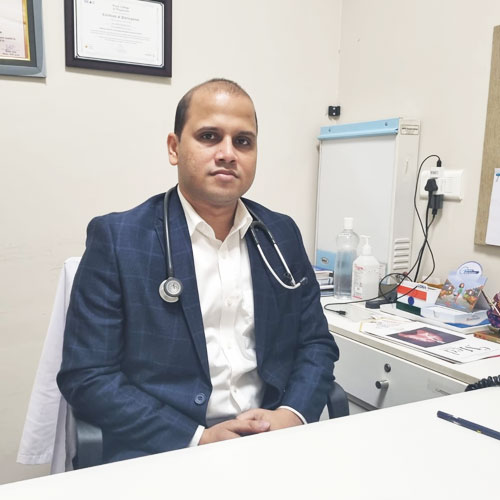Bronchoscopy
Bronchoscopy Bronchoscopy is a procedure in which, your pulmonologist enters a thin tube (called a Bronchoscope) through your mouth or nose, down the throat, and lastly, into your lungs. This procedure lets your doctor look at the air passages and lungs.

A patient may need this procedure if he or she has a persistent cough, infection, or something unusual diagnosed on a test. Bronchoscopy can also analyze samples of mucus or tissue and remove blockage or foreign bodies from your lungs or airways.
Lung Cancer Screening

We offer the most advanced lung cancer screening facilities for early diagnosis of the condition. A low-dose computed tomography, also known as Low Dose CT scan (LDCT) is the only recommended screening test for lung cancer. During the LDCT scan, the person has to lie on a table and an X-ray machine makes detailed images of your lungs using a low dose of radiation. The screening takes just a few minutes and does not cause any pain.
Pulmonary Consultation
Any person who has coughing that doesn't improve over time, shortness of breath, pain or tightness in the chest, wheezing, or sleep apnea symptoms, like excessive tiredness or snoring, followed by dizziness should consult a Pulmonologist.
Dr. Tarun Kumar Baid is a highly experienced pulmonologist who can help you with various respiratory ailments. He evaluates your respiratory and lung function during a consultation in several ways.
Smoking Cessation

Smoking tobaccos are one of the most common causes of various lung or respiratory diseases. If you are regular smoker, try to quit it as early as possible. Your doctor may also help you in the process of Smoking Cessation in various ways including - unassisted procedure, cold turkey method, cutting down to quit method, gradual reduction, medications, Nicotine replacement therapy, using antidepressants, etc.
Spirometry
Spirometry is a pulmonary function test most commonly recommended by chest specialists. The procedure involves measuring lung function and the speed and/or amount of air that you inhale and exhale. Spirometry is also useful in assessing your breathing patterns and let your doctor identify conditions, including asthma, cystic fibrosis, pulmonary fibrosis, and COPD.
Pulmonary Function Testing

Pulmonary Function Testing (PFT) is an umbrella term that refers to a complete evaluation of your respiratory system by comprising physical exams, tests of pulmonary function, and an analysis of patient history. The primary purpose of PFT is to diagnose the severity of your pulmonary dysfunction. We have highly skilled pulmonary function technicians, respiratory physiologists & therapists, physiotherapists, and general practitioners who perform PFTs.

Dr. Tarun Kumar Baid
Consultant - Pulmonology & Critical Care in SiliguriMBBS (North Bengal Medical College),
MD Respiratory Medicine (Sardar Patel Medical College)
DAA (Asthma & Allergy) University of Colorado, USA



